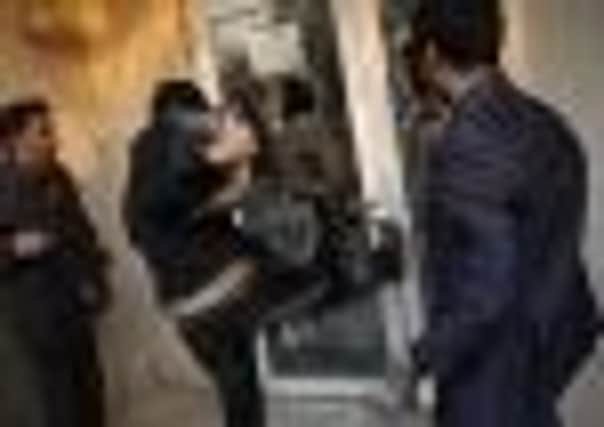Banned: 180 key players in Iranian regime


With concerns continuing to grow over Iran’s nuclear programme, EU foreign ministers met yesterday to discuss how to deal with the international threat posed by the Middle Eastern power.
Among the new sanctions imposed were the addition of 180 individuals and Iranian businesses associated with the regime to a list of those banned from travel in Europe and whose European assets are frozen.
Advertisement
Hide AdAdvertisement
Hide AdThey were people and companies involved with Iranian shipping lines, financial services, energy and transport, or those associated with the Iranian Revolutionary Guard.
The meeting also saw new sanctions being imposed on another pariah state – Syria – amid fury over the way protests against president Bashar Assad’s regime are being oppressed. However, most of the summit focused on the attack on the British embassy in Tehran which ultimately led to the UK and Iran expelling each other’s diplomats.
Speaking after the summit, EU foreign policy chief Baroness Ashton expressed the anger of the foreign ministers. She said: “The council [of foreign ministers] is outraged by the attack on the British embassy and deplores the decision to expel the British ambassador. These actions against the UK are against the European Union as a whole.”
There was an implication that Iran may see its diplomats expelled from other EU states as well but this was not confirmed yesterday.
With regard to Syria, the EU foreign ministers imposed sanctions on 12 people and 11 entities, adding to the list of those previously sanctioned by the EU.
The EU is working with the Arab League to halt the violence, and the league’s chief, Nabil Elaraby, attended yesterday’s meeting.
Arriving at the talks, British Foreign Secretary William Hague had highlighted what he said was a link between the Syrian and Iranian regimes. Iran had been giving support to the suppression of dissent in Syria, he said, even while Iran had welcomed public protests in other parts of the world during the Arab Spring.
Mr Hague said the UK was pleased with the outcome of yesterday’s meeting, but it was not the end of the issue – further measures to be discussed next month would be designed to “severely affect the Iranian financial system and the energy and transport sectors”.
Advertisement
Hide AdAdvertisement
Hide AdA ban on Iran exporting its oil to the EU could hit European companies and worsen the economies of some struggling member states which might face higher prices for oil from elsewhere.
Mr Hague said: “There is more work to be done on what we will do in the energy sector.”
Meanwhile, he said, the determination of the EU had been demonstrated again: “I think the Iranian regime should hear that loud and clear from this meeting in Brussels.”
Earlier, Mr Hague repeated his thanks for the support of member states, including Germany, France and the Netherlands which have withdrawn their ambassadors from Iran following the attack on the UK embassy.
He said the long-term concern was with the Iranian nuclear programme, and the danger it posed to Middle East peace and the threat of proliferation.
Also discussed at the meeting was the situation in Camp Ashraf, an enclave in eastern Iraq that houses about 3,400 Iranian exiles, many of whom are dedicated to overthrowing the government of Iran.
Iraq, whose government has close ties with Iran, has said Camp Ashraf must be closed by the end of this year.
Struan Stevenson, a Scottish Conservative MEP, said on Wednesday that Iraq’s government is “continuously working on its plan to attack Ashraf and massacre the residents”.